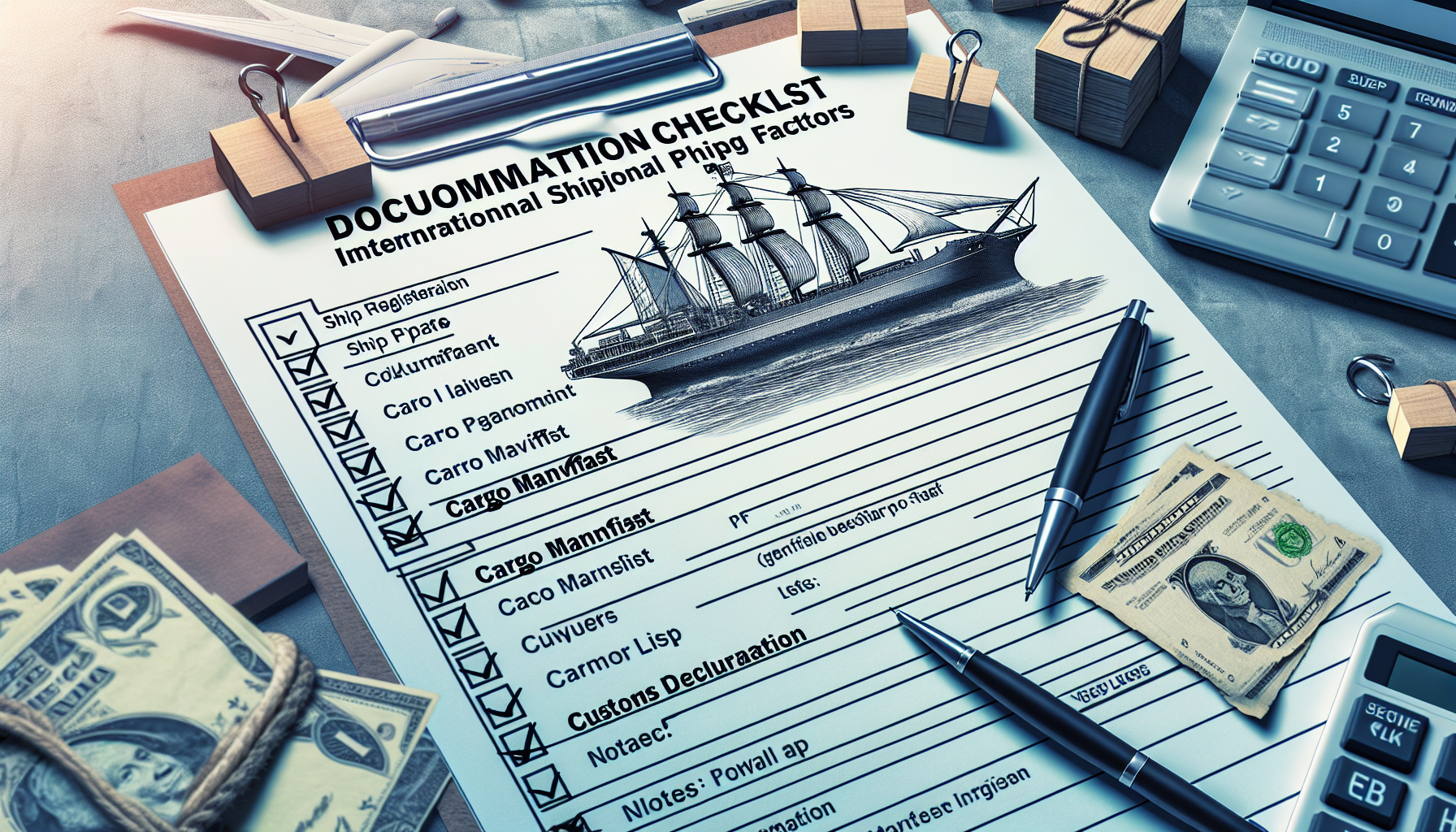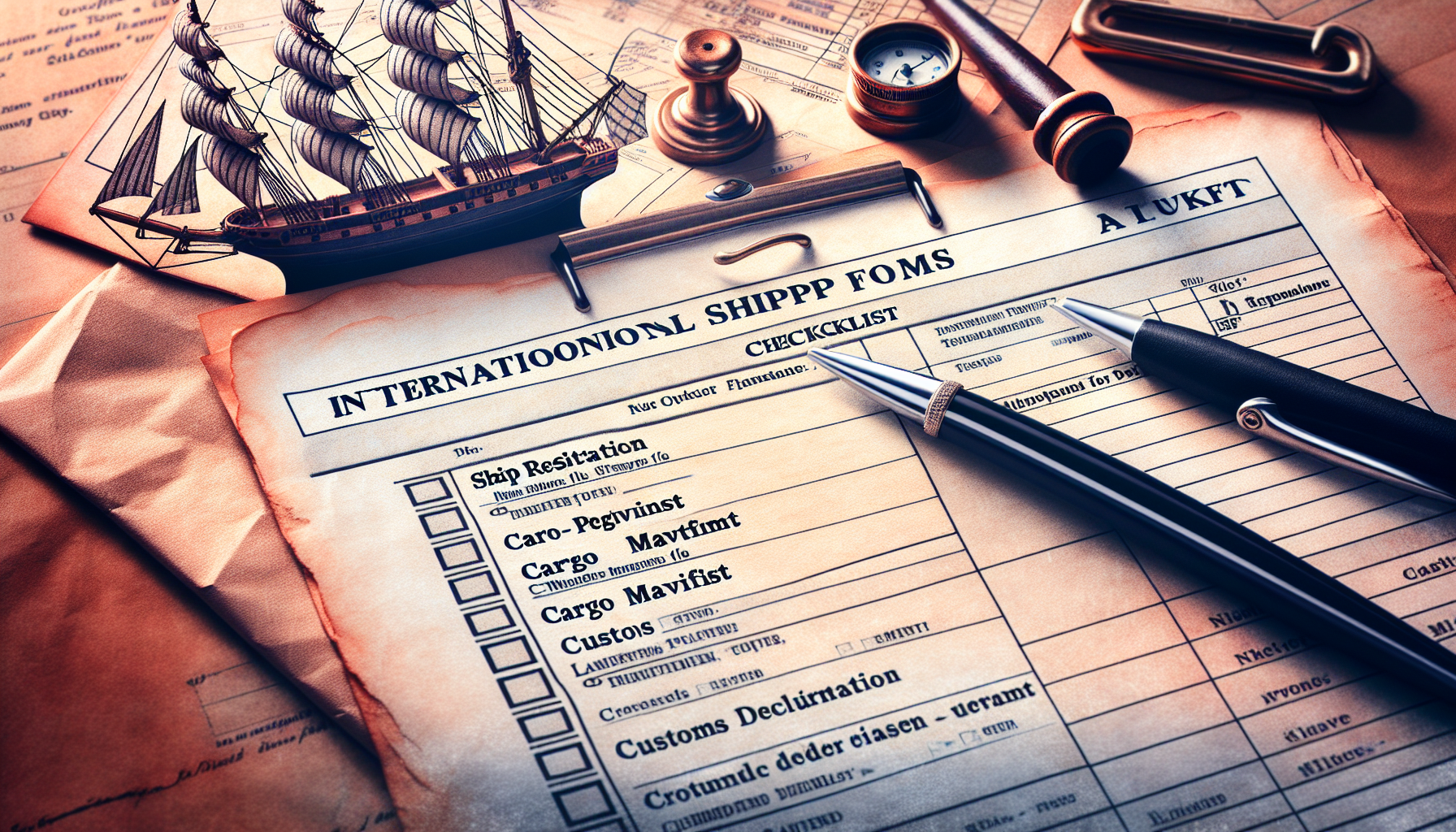How To File ISF For Pirate Ships
Filing ISF for Pirate Ships
As an importer dealing with pirate ships, it is crucial to understand the process of filing Importer Security Filing (ISF) to ensure compliance with the U.S. Customs and Border Protection (CBP) regulations. This article will guide you through the necessary steps to file ISF for pirate ships efficiently and effectively.

Understanding ISF for Pirate Ships
Before we delve into the process of filing ISF for pirate ships, let’s first establish a clear understanding of what ISF entails. ISF, also known as 10+2, is a mandatory requirement by CBP for ocean cargo shipments entering the United States. The main purpose of ISF is to enhance cargo security and facilitate risk assessment before the shipment reaches the U.S. ports.
Key Components of ISF for Pirate Ships
When filing ISF for pirate ships, there are specific key components that you need to include in the submission. These components are vital for CBP to assess the security risk associated with the cargo and to facilitate a smooth clearance process. Some of the key components of ISF for pirate ships are:
- Vessel Stow Plan: This includes details about the cargo’s stowage location on the vessel.
- Container Status Messages: Information on the status of the container, such as full, empty, or in-transit.
- Bill of Lading Number: A unique identifier for the cargo shipment.
- Supplier Information: Details about the supplier or manufacturer of the goods.
- Consolidator Information: Information about the party consolidating the cargo for shipment.
Filing ISF 10+2 for Pirate Ships
Now that you have a basic understanding of ISF for pirate ships, let’s walk through the steps to successfully file ISF 10+2 for your cargo. Filing ISF 10+2 involves submitting critical shipment information to CBP at least 24 hours before the vessel’s departure to the U.S. port.
Step 1: Gather Required Information
The first step in filing ISF 10+2 for pirate ships is to collect all the necessary information regarding your cargo shipment. This includes details about the supplier, manufacturer, carrier, and importer. Make sure to have all the required data ready before proceeding to the next step.
Step 2: Submit ISF to CBP
Once you have gathered all the required information, the next step is to submit the ISF filing to CBP through the designated electronic data interchange (EDI) system. Ensure that the information is accurate and complete to avoid any delays or penalties.
Step 3: Maintain Compliance
After successfully filing ISF 10+2 for pirate ships, it is essential to maintain compliance with CBP regulations throughout the shipment process. Stay updated on any changes to the ISF requirements and ensure timely submission of any amendments or updates to the filing.

Customs Clearing for Pirate Ships
In addition to filing ISF, another critical aspect of importing pirate ships is customs clearing. Customs clearing involves the process of declaring and releasing the cargo through customs authorities for entry into the destination country.
Importance of Customs Clearing for Pirate Ships
Customs clearing for pirate ships is essential to ensure that the cargo complies with all customs regulations and is eligible for entry into the United States. Failure to adhere to customs clearing procedures can result in delayed shipments, additional costs, or even seizure of the cargo.
Benefits of Professional Customs Clearing Services
To expedite the customs clearing process for pirate ships, consider utilizing professional customs clearing services. These services offer expertise in navigating complex customs regulations, ensuring timely clearance of your cargo and preventing any potential delays or penalties.
Securing a Customs Bond for Pirate Ships
As an importer of pirate ships, securing a customs bond is a crucial aspect of your shipping process. A customs bond serves as a financial guarantee to CBP, ensuring that the importer will fulfill all obligations related to the importation of goods.
Understanding Customs Bonds for Pirate Ships
A customs bond for pirate ships is a type of surety bond that guarantees the payment of duties, taxes, and fees to CBP. Without a customs bond, CBP may refuse entry of the cargo into the United States or impose penalties on the importer.
Benefits of Securing a Customs Bond
Securing a customs bond for pirate ships offers several benefits, including expedited cargo clearance, improved compliance with CBP regulations, and minimized financial risks for the importer. It is crucial to work with a reputable surety provider to obtain a suitable customs bond for your shipping needs.

Consult an Import Specialist – Free of Charge
After going through the detailed process of filing ISF for pirate ships, customs clearing, and securing a customs bond, it is essential to consult an import specialist to ensure compliance with all regulations. By seeking the expertise of an import specialist, you can receive guidance on navigating the complexities of importing pirate ships and avoid any potential compliance issues.
For more guidance on filing ISF for pirate ships, customs clearing, securing a customs bond, or any other import-related queries, consult an import specialist free of charge. They can provide valuable insights and assistance tailored to your specific shipping needs and help you streamline the import process effectively.
Consult an Import Specialist – Free of Charge.
By following the steps outlined in this article and leveraging professional services for ISF filing, customs clearing, and customs bond securing, you can ensure a seamless and compliant import process for your pirate ships. Make sure to stay informed about any updates to CBP regulations and maintain accurate record-keeping for future reference.
